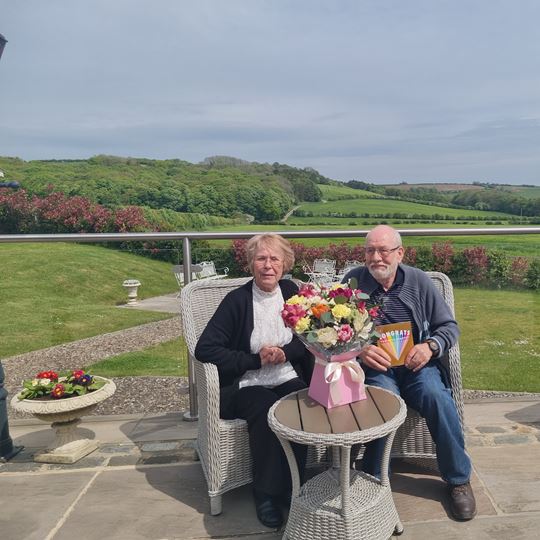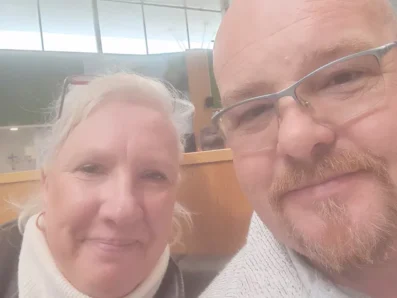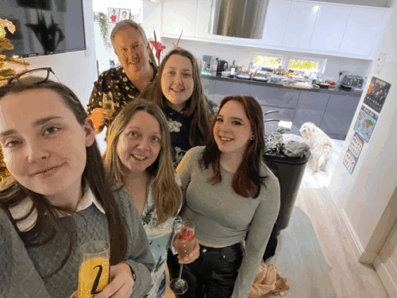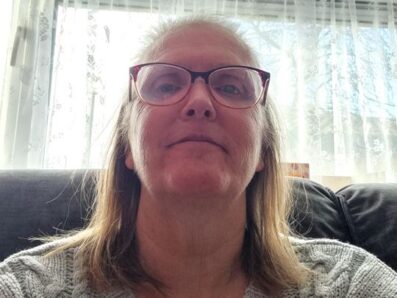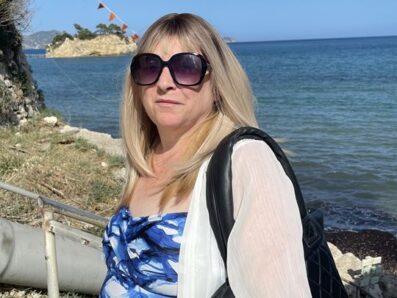Maggie and Allen have cared for 7 children over the years, including providing respite foster care to children for the weekend.
Maggie remembers what an incredible feeling it was having a second foster child walk through their doors for the first time after coming from a children’s home. She explains: “At the time, we already had one 14-year-old child with us, who we’d looked after for three years. He was doing really well and had become settled, so I then agreed to make up another room and take another foster child on”.
“Whilst considering another foster child, Orange Grove asked me to look at the paperwork for a child who had multiple additional needs, including sign language and epilepsy, which is normally something you must consider carefully before fostering. It turned out that I recognised the girl from a residential home I had worked at and was delighted to take her in and have her with us, which was brilliant for us as a family.
“She ended up staying with us for 5 years. This is one of my biggest achievements to date because we were able to integrate this girl from a children’s home into a normal, loving family home environment, where she was so happy and content. It is one of my most special memories.”
Maggie believes her journey in fostering has made a huge impact on family life, as she reveals: “We have had extended free time, which means we have been able to spend time with the children and grandchildren. It’s also been positive for the grandchildren to see us fostering vulnerable children. Our eldest son is a deputy headmaster and thinks the work we do is fabulous. It’s all just been a lovely experience for us as a family unit.”
However, fostering does not come without its challenging times, as Maggie explains: “For us, I think information is one of the main challenges. There is never enough! You can never know everything about a child prior to having them. I always try to think ‘DIM’ – does it matter! Some things will happen and you’ll simply have to say to yourself “does this really matter right now in the big scheme of life?” It’s about steering and teaching these children the right way in life, that’s what it all comes down to.”
Maggie and Allen have also undergone extended foster parent training to help them with fostering children with disabilities. The couple has learnt sign language due to a child being non-verbal, as well as training on epilepsy procedures and drugs, Asperger’s syndrome and general training.
Maggie explains: “We have had extensive training and learned a lot about a range of conditions due to the needs of the children in our care over the years. As well as training for Asperger’s, epilepsy and non-verbal children, one of the children with us was also diabetic, so we have had to learn a lot of information about that. These can be challenging at times, but we push through and do the best we can for the children.”
Maggie explains that the most rewarding part of fostering is seeing the difference you can make in a child’s life. She said: “Children come from totally different backgrounds from where and how we were brought up. Whilst it is cliche, the difference you can make to these children’s lives is amazing, truly amazing. Encouraging them into a healthy routine and family life, and teaching them to recognise and experience their feelings is an important part of fostering that means a lot to us.”
“Along with our normal training, we have done several training sessions with Marri, who does DDP (Dyadic Development Psychology training) which we use along with PACE. We use it as a support to help the children understand and process what’s happening. It’s a nurturing way of fostering and I think it’s been extremely beneficial for us”.
Maggie and Allen have this piece of advice for those who are considering fostering vulnerable children: “After 15 years of fostering, I think the main piece of advice from us is that although people will always say you can treat them like your own children, you can’t! Every child that comes to you will have their own way of doing things, and you have to be adaptable, understanding and willing to care for these children the way that they need it.
“Don’t just look at the referral paperwork, look beyond that. Think about the huge difference you’re making, you don’t know what you’re capable of until you’re asked to do it – so give it a go. It’s a very rewarding thing to do.”
Other articles you may like
Ready to start your fostering journey?
By Phone
One of our team is available to talk to you over the phone to answer any of your fostering queries.
By Email
You can get in touch by filling out our online enquiry form with any queries that you may have.
Visit an office
We have local teams covering most of England. Find your local office today.
